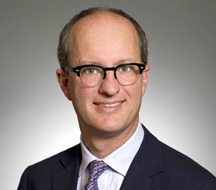
While the investment climate has generally been positive in recent months, investors can expect a macroeconomic “tug of war” in 2017, according to the head of TD Asset Management Inc.
“On the one side of this tug of war are some good things from the perspective of the financial markets,” Bruce Cooper, chief executive and chief investment officer at TD Asset Management, said at an event in Toronto on Thursday.
The positives include economic improvements in Europe and a solid performance in North America, Cooper told an audience of investors at an event hosted by TD Asset Management. But on the other side are high debt levels, demographic trends that see fewer people working in developed economies and potential protectionist measures.
What’s key, then, is for investors to find value and limit their exposure to risks they can’t control. And one of the options to do so is to look at private debt, said Bruce MacKinnon, vice-president and director at TD Asset Management.
Read: Bond holders warned to brace for sharp U.S. rate hikes
“We think that private debt is a great complement to your fixed-income portfolio,” said MacKinnon, who noted investment-grade private debt can offer investors more control as well as a premium over the public markets.
MacKinnon cited an example of a U.S. paint manufacturer that sought to offload a distribution centre through a transaction that involved issuing private debt and a long-term, non-cancellable lease on the property. The transaction delivered a premium of 124 basis points on top of the 129 basis points that would have been available through a public offering.
While private debt transactions do take more time to negotiate, MacKinnon suggested that besides the “uniqueness premium” investors can harness, they also get enhanced diversification and greater control over the deal. And that, he noted, is an advantage at a time of uncertainty. ”You’re really . . . lifting up the hood and seeing what’s in an underlying transaction,” said MacKinnon, who cited private debt as a way for investors to get a better result on their existing allocation to fixed income.
Read: Green bonds gaining momentum as sovereign players enter the market
